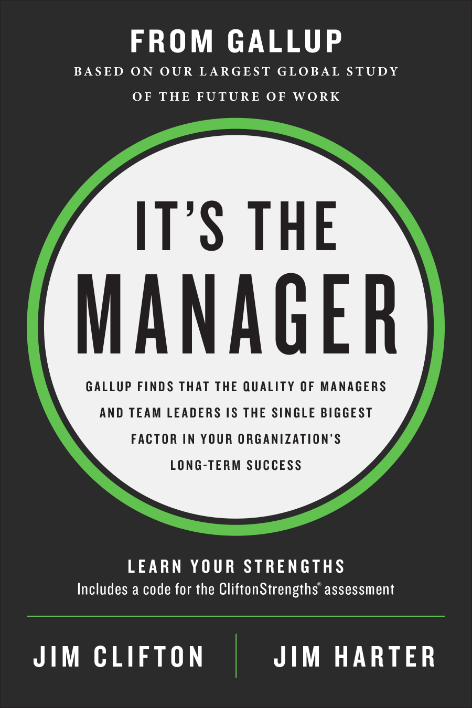Story Highlights
- Great onboarding programs lay the foundation for long-term engagement and performance
- Few onboarding programs answer employees' most important questions
- Discover the five most important things every new employee needs to know
Every organization has an onboarding process -- a method for integrating new employees into their culture. The onboarding methods vary from "find your own way" to "follow this precise path."
But few onboarding systems are effective -- at least from the perspective of those who experience the process.
Gallup analytics finds only one in 10 employees -- including managers and leaders -- strongly agree their organization does a good job of onboarding new employees.
The problem has become particularly acute because the labor market is so competitive now.
If the employee's reasons for joining your organization are not affirmed within their first month on the job, they probably have other options to explore -- or may develop a tarnished image of your organization that they carry for however long their tenure lasts.
Most workers simply won't wait a year to feel out an employer's culture. That means organizations really need to think more deeply about the purpose of onboarding.
From Gallup's perspective, onboarding should do two important things:
- fulfill the promises made during the hiring process
- lay the foundation for long-term engagement and performance
So what aspects of onboarding are proven to lay the foundation for consistent high performance?
Here are the five questions every employee needs to have answered if they are to have an exceptional onboarding experience:
1. "What do we believe in around here?"
Naturally, there's a lot of "nuts and bolts" material that must be communicated during an orientation. But all those little details are expressions of your organizational culture.
How you explain your benefits, time off, and other policies -- and what those policies actually are -- tells new employees more about what you truly believe than a PowerPoint slide displaying your core values.
Employers should consider how their culture is experienced in every aspect of onboarding.
When employees strongly agree that they have a good understanding of "how we do things at this organization," they are 4.7 times more likely to strongly agree their onboarding process was exceptional.
2. "What are my strengths?"
To be set up for success, employees need to know what they do best -- and what they don't do best. Managers and teammates need to know where a new employee can really shine, too.
Employers should invest in strengths-based learning and development as part of the onboarding program. A genuine investment in new employees sends the message: We care about you. We want to know you personally. We want to see you succeed here in the long term.
Employees who strongly agree they can apply their strengths every day at work are 3.5 times more likely to strongly agree their onboarding process was exceptional.
3. "What is my role?"
As many managers and employees experience, there can be a large difference between the external job posting, the internal job description and the work that actually needs to get done.
As a result of this disconnect, only about 50% of employees strongly indicate they know what is expected of them at work.
But it's nearly impossible to be successful at something with unclear expectations. Setting realistic job expectations during the hiring process is important, but managers play the most important role in setting expectations for new employees.
When employees strongly agree they are confident in their ability to excel in their role, they are 1.8 times more likely to strongly agree their onboarding process was exceptional.
4. "Who are my partners?"
Socialization is an important part of being human -- a need that doesn't change when people join a new organization. New employees may feel warmly welcomed in the first week, only to feel isolated and lost three months in.
Getting work done depends on collaboration within and across departments. Each person's influence on the overall organization depends on the quality of their partnerships.
New employees can extend their reputation and influence through early interactions with others -- their reputation can also be tarnished if they don't have the right supportive partners.
Managers are critical conduits to relationship-building opportunities early on. They can proactively expand a new employee's social network through the first year or two of employment by making introductions and through advocacy.
When employees strongly agree they have partners they can always rely on at work, they are 1.9 times more likely to strongly agree their onboarding process was exceptional.
5. "What does my future here look like?"
All people have an innate need to learn and grow -- to see their future opportunities. This is particularly true for new employees who don't just see your organization as a paycheck -- they see an opportunity for a better future.
Onboarding is not too soon for managers to have conversations with employees about their hopes and dreams.
Even if promotions aren't on the horizon just yet, organizations can align learning and development with onboarding so that when the honeymoon ends, there are plenty of ways to continue to develop professionally.
Employees who strongly agree they have a clear plan for their professional development are 3.5 times more likely to strongly agree that their onboarding process was exceptional.
***
When these five questions are answered in a definitive way, it paints a compelling picture for new employees that clarifies:
- what they are supposed to be doing
- how they are supposed to do it
- who they are doing it with
- what unique gifts they bring to the table
- where they are headed
As a result, organizations get the most out of their hard-won talent as quickly as possible.
Gallup can help you answer every important question your employees might have:
- Download our perspective papers on onboarding programs, exit programs and the entire employee experience.
- Get exclusive excerpts about company culture from Gallup's new book, It's the Manager.
- Discover our platform that helps you ask your employees the right questions and gives you learning to improve the employee experience.






